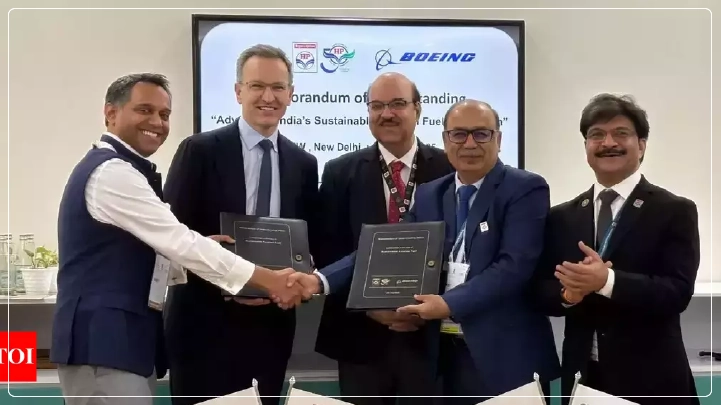February 2025
The two leading global aviation companies Boeing and Hindustan Petroleum Corporation Ltd. have agreed to support the development of the Sustainable Aviation Ecosystem in India. The partnership has been earmarked to support the eventual accomplishment of India's environmental goals around increasing production of SAF, advocating policies for SAF development, and ensuring certification of domestically produced SAF. Aviation is termed to be the sector among the fastest growing sources of carbon emission, and for reducing the environmental footprint of such a sector, SAF is considered one of the key solutions. HPCL's joining in the partnership will include Trijet technology owned by it and developed at its HP Green R&D Centre, which ultimately converts used cooking oil to SAF.

Predictably, using this technology, HPCL aims to commercialize SAF production making it accessible to Indian airlines, which are less dependent on conventional jet fuel. Boeing has been an advocate of sustainable aviation solutions for many years and working globally for cleaner fuels and the development of eco-sensitive aircraft. The ascendancy of the company's engagement in this partnership is not differentiated from its wider sustainability vision, given that SAF is recognized as a strategic lever for decarbonizing the aviation sector. Boeing has agreed to use its experience in SAF certification, supply chain optimization, and policy advocacy to facilitate the robust framework for SAF adoption in India.
SAF- Sustainable Aviation Fuel is a fuel variant that minimizes carbon emissions to a large extent when compared to conventional jet fuels. Boeing estimates that it could even lower emissions by 84% over its full life cycle. Any efforts directed toward SAF could include used cooking oil, agricultural and forestry waste, non-recyclable municipal waste, industrial plant off-gassing, and cover crops. It also contributes toward energy independence.
The advantage of this would have been lower fuel prices in the long-term cost in India along with inculcating innovations in the renewable energy arena. This would ensure widespread adoption in the future overcoming challenges like high production costs and lack of policy support. Boeing and HPCL are also expected to work with policymakers toward building regulatory environments for investments into SAF infrastructures. In addition, there would be a pressing need for a large facility for bulk production by leveraging existing HPCL refineries and research facilities.
Boeing, alongside HPCL, expresses primary interest in developing next-generation Sustainable Air Fuel (SAF) technology to facilitate information exchange, training programs, and capability-building within the industry. This association is expected to assist India in discharging its sustainability commitments, notably net-zero emissions by 2070. The increased usage of SAF can play a very important role in eliminating the carbon footprint involved with air travel itself.
The partnership identifiably targets cutting-edge technology solutions while advocating for supportive legislation and developing SAF manufacturing in the country to make it one of the key players in the global SAF market. The aviation sector will draw closer to a cleaner and greener future through the embrace of SAF by airlines all over the world towards combating climate change.
February 2025
February 2025
February 2025
February 2025